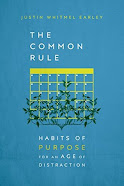This morning, as I nestled in a blanket reading my Bible, I looked up to see a pair of goldfinches perched on my zinnias, pecking so hard seeds scattered. These birds tease me. They appear at the feeders for a day, then they’re gone. After leaving the zinnias, two of these “flying butterflies” landed on my clothesline. I am blessed.
A few weeks ago, early one morning, a son and daughter-in-law arrived, arms loaded with geraniums, vines and lobelias. They filled our planters and placed them around our home. I am blessed.
Feelings of gratitude counteract the dreariness of everyday life. Last week my hubby had four doctors’ appointments. Each time we drove 45 minutes to the city, spent an hour or two in waiting rooms and examining rooms, then drove home. By then the day is gone, and I need a nap. There are plenty of reasons to worry about my husband’s health. But the doctors assured us Bill is as healthy as he can be for this age and stage. I am blessed.
I want to develop a consistent attitude of gratitude. In scripture we read the story of Jesus healing ten lepers. Only one, a Samaritan, came back to thank Him. “Jesus asked, ‘Were not all ten cleansed? Where are the other nine? Has no one returned to give praise to God except this foreigner?’” (Luke 17:17-18).
Samaritans were considered half-breeds because they were Jews who intermarried with foreigners. And leprosy was an insidious disease. It not only ate away your flesh, but it also ate away your social life. Friends avoided you. If someone approached you, you shouted “unclean” so they would stay away. But to Jesus, these men were precious souls, created by God, and He healed them. However, only one returned to give thanks.
Perhaps the others were so excited they simply forgot. They ran home to tell wives and children. Maybe they killed a fatted calf and danced in the streets. Imagine the joy! But imagine the disappointment of Jesus when they failed to thank Him. And imagine the disappointment of God when we take everyday blessings—sunshine and rain/health and energy/friends and family—for granted.
Some people keep gratitude journals. They jot down blessings at the end of the day, and they savor the memories. A hug from a grandchild, a rainbow, a blooming geranium. A great idea.
“Enter his gates with thanksgiving and his courts with praise; give thanks to him and praise his name” (Psalm 100:4 NIV).
In THE HOUR THAT CHANGES THE WORLD, Dick Eastman suggests praying in five-minute segments for an hour and spending one of those segments thanking God.
The Blessings of Giving Thanks:
1. Thanksgiving lightens my heart and brightens my day. It’s easy to focus on little annoyances—a cranky baby, a husband who squeezes the wrong end of the toothpaste, potatoes that shrivel in the microwave. But it’s just as easy to find blessings in such moments. Many women long to be mothers yet are denied that privilege. Many widows long to have back their husbands—messy toothpaste tube and all. Many people long to eat potatoes, shriveled or not.
2. Thanksgiving blesses God and others. Besides thanking God, I thank caregivers. That brightens their day and gets me over the annoyance of a long wait. People like people who appreciate them.
3. Thanksgiving helps me sleep better. If I’m feeling down, expressing thanks as I drift off fosters within me a more positive attitude as I appreciate the little things of life—a tasty dinner, a hot shower, a good book.
It may take time. My father used to develop photos in the “darkroom” of our home, our bathroom without windows. On rare occasions, he let me watch him take the film from our camera, emerge it in fluid, then hang it up. At first the picture appeared as a faint image, but after it dried, it was a beautiful photograph. (The photo above shows our old Kodak camera while the photo below shows me by a peony bush and my sister Marie posing like a movie star.) The process took time. And so does developing an attitude of gratitude.
Start your day looking out your window and not only looking but SEEING the wonder of God’s creation. Thank God, and keep your eyes open for people to thank. Your day will go better, no matter what happens. Guaranteed.




